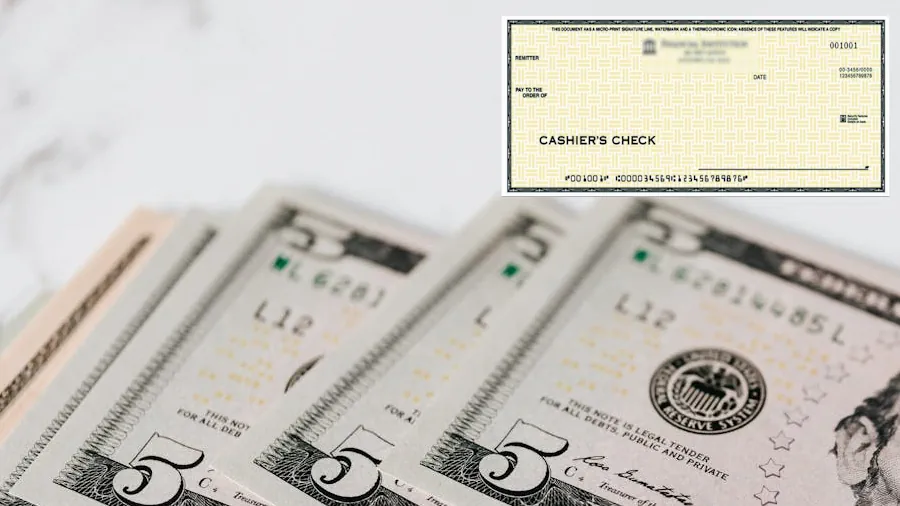Understanding Cashier’s Checks: A Reliable Payment Method
Contents
In the realm of secure payment options, cashier’s checks hold a prominent position. Recognized for their security and reliability, these checks are a preferred choice for transactions where guaranteed funds are paramount.
A cashier’s check functions like a regular customer check but is issued by a bank or credit union and drawn from the institution’s funds rather than the customer’s personal account. The financial institution backs the check, making it a highly secure form of payment since the funds are guaranteed to be available.
The check is payable to a third party, as specified by the bank customer, and is signed by a bank official, such as an officer or teller. This heightened security makes cashier’s checks a preferred option for substantial or sensitive transactions where the risk of insufficient funds or fraud is a concern.
Cashier’s Check Defined
A cashier’s check is a form of payment issued by a bank or credit union, guaranteeing the availability of the funds by the institution itself. Unlike personal checks, where funds are drawn against the account holder’s balance, cashier’s checks draw on the bank’s funds, ensuring the recipient that the check will not bounce.
How To Obtain A Cashier’s Check
Obtaining a cashier’s check involves a visit to your bank or credit union. You’ll need to have the exact amount of the check available in your account. The bank then deducts this amount from your account and issues a check that is drawn from its own funds. The process typically involves a fee, varying by institution.
When To Use A Cashier’s Check
Cashier’s checks are ideal for significant transactions such as buying a car, making a down payment on a house, or any situation requiring a secure form of payment. They are also used when the payee needs assurance that the funds are secure and will be available upon deposit or cashing of the check.
Cashier’s Check for Money Transfer
For transferring large sums of money, especially when immediate availability of funds is crucial, cashier’s checks are a dependable option. They are often used in real estate transactions, vehicle purchases, and large personal transactions between parties who require a high level of mutual financial trust.
Can Cashier’s Check be cashed in India?
Yes, cashier’s checks can be cashed in India, but it’s essential to go through a bank that can handle foreign checks. The process might involve currency conversion and associated fees, and it can take longer than cashing a local check.
Safety and Security: Why Cashier’s Checks Are Trusted
Cashier’s checks provide a layer of security unmatched by personal checks. When you request a cashier’s check, the bank confirms your account has sufficient funds, then moves the amount from your account to its own. This transaction makes funds available to the payee immediately upon deposit or cashing of the check. Since the check is signed by a bank employee, it serves as proof of the bank’s commitment to pay, offering greater security for both the sender and the recipient.
What is the downside of a cashier’s check?
The primary downside of a cashier’s check is the cost, as banks typically charge a fee to issue these checks. Additionally, obtaining a cashier’s check requires a visit to the bank, which can be inconvenient. There’s also the risk of fraud; while secure, cashier’s checks can still be counterfeited, leading to complications.
If a cashier’s check is lost or stolen, getting a replacement can be a lengthy and potentially costly process. Furthermore, verifying and cashing a cashier’s check can take time, especially if banks need to ensure its legitimacy, delaying access to the funds.
In summary, cashier’s checks stand out as a secure and trusted form of payment, suitable for high-value transactions and situations requiring assured funds. Their use involves a collaborative process with the issuing bank, adding an extra layer of security to your transactions.

